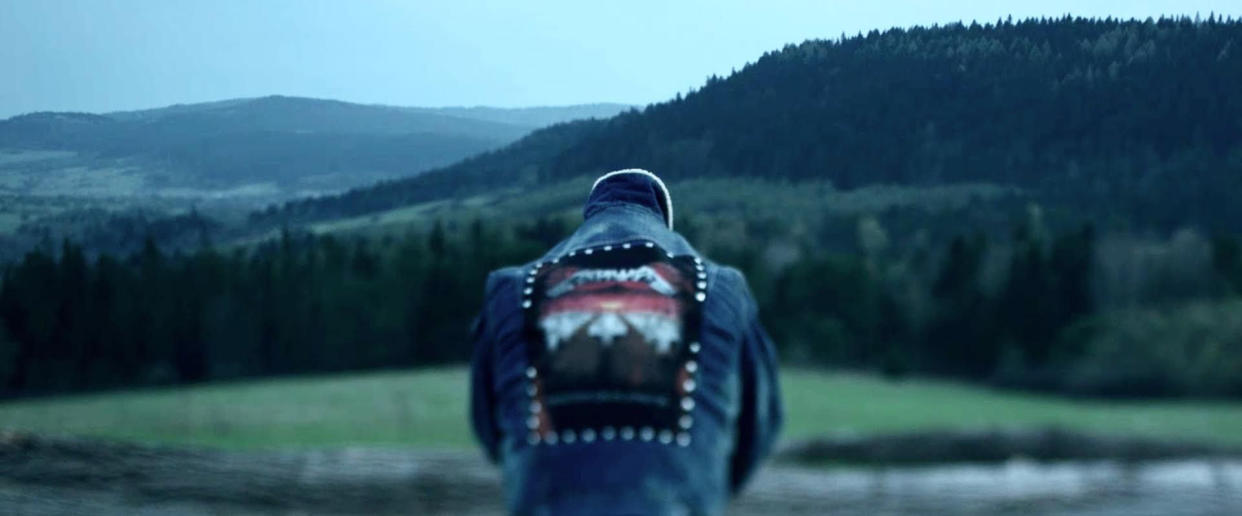Berlin Film Review: ‘Mug’

The asterisks would practically outnumber the alphabet if one were to quote the exact Metallica lyric that blares out intermittently during Malgorzata Szumowska’s “Mug.” Suffice to say, the song is “Hardwired,” and the cut concludes with a treble drumbeat underlining the sentiment “Hard-wired to self! de! struct!” At first it seems to be a choice based on incongruity: The crunching power chords accompany images of our hero Jacek (Mateusz Kościukiewicz) driving a car so rickety it looks like you could peel the roof off with a can opener through the rural farmlands of southern Poland. But soon it becomes clear that Szumowska, despite the satirical bent overall, is not using the song ironically, but suggesting the combined forces of consumerism, Catholicism, bigotry, and parochialism have her homeland on a dangerous path. Don’t let the moments of outright comedy fool you; in “Mug,” Szumowska agrees with James Hetfield’s assessment of the situation: “We’re so f—ed.”
Jacek will eventually have his eyes opened, but only through the most painful of experiences. A good-natured, long-haired, young headbanger living at home with his extended family, dating local party girl Dagmara (Małgorzata Gorol) and working on the construction of a Rio-rivalling statue of Jesus on a nearby hill, for him, despite a carefully cultivated malcontent image, life is pretty sweet. He even scored a discount big-screen TV at the “underwear sale” that opens the film — a chaotic and surreal flurry of slo-mo images as men and women stripped down to their graying skivvies do battle for a pile of luxury goods in a store’s gimmick promotion. Still, during a Christmas ritual of mutual well-wishing, the sister to whom he is close (Agnieszka Podsiadlik) expresses her hope that Jacek will get out of the village. She herself is trapped by a fractious but not wholly unhappy marriage to her big lug of a husband (Robert Talarczyk) and their two kids.
But just after his engagement to Dagmara, the kind of sexy rebel chick who will join him screaming profanities over their hick town from an outcrop in the surrounding hills, Jacek takes a tumble at work, falling right into Jesus’ gaping torso. His injuries are so severe that he requires Poland’s first face transplant to survive. The operation is a success, but afterwards, the defiantly chipper Jacek is unrecognizable, even to himself. Through a painful rehabilitation process with only his sister as steadfast support, struggling with sudden celebrity, mounting bills, and increased ostracization from the village, Jacek’s sense of his place in the world is challenged. Meanwhile, work on the towering Jesus statue continues without him, although the behavior of the local priest and the parishioners toward the martyr in their midst would be enough to make the Messiah turn his head away in disgust.
Szumowska, who is returning to the Berlin competition after winning best director in 2015 for “Body,” wants to tackle manifold issues, often unrelated to each other, and her attention feels magpie-ish and unsettled, a flaw literalized by the choice to shoot on old-style folding cameras with a very narrow depth of field. Szumowska, along with co-writer and cinematographer Michal Englert, overuse this visual device to an ultimately distracting and somewhat headachey degree: Every now and then, it’s nice to be able to choose which part of the screen to look at without having one’s attention forced that way, as though down a tunnel of Vaseline-smear. The effect is also oddly miniaturizing, and if the storybook quality is something that they were going for (and the narrative does take the form of a kind of fable), it sands the edge off some of the more vituperative commentary on real-world issues.
That commentary too, lacks coherence. Many of the swipes are just too broad, like the confessional scene in which the priest is shown to be a little too interested in the precise details of Dagmara’s sexual transgressions. Or the shorthanded anti-Roma prejudice, and the racist jokes Jacek laughs along with before his accident, little realizing he’ll soon fall victim to that same callousness. And the uninjured Jacek being referred to as “Jesus” on account of his long hair feels a mite on-the-nose considering the trials he’s about to face.
Most troublesome, however, is the worrying sense that while the villagers unkindly reject Jacek on the basis of his appearance, we are being primed to do much the same with them: to judge them on their sketched-in appearances here as small-minded bigots and grotesques who’d grab a semi-naked old lady by the scruff of her baggy underwear if it meant a percentage discount on some luxury electronics. “Mug” works hard to be a fable about inner strength and beauty. But did everyone else have to come off as quite so foolish and ugly?
Related stories
Film Movement Takes U.S. Rights to 'Egon Schiele,' 'Welcome to Germany' (EXCLUSIVE)
Berlin Film Review: 'In the Aisles'
Subscribe to Variety Newsletters and Email Alerts!

